In this issue, Index on Censorship magazine explores the role of imported US television and culture in the Caribbean.
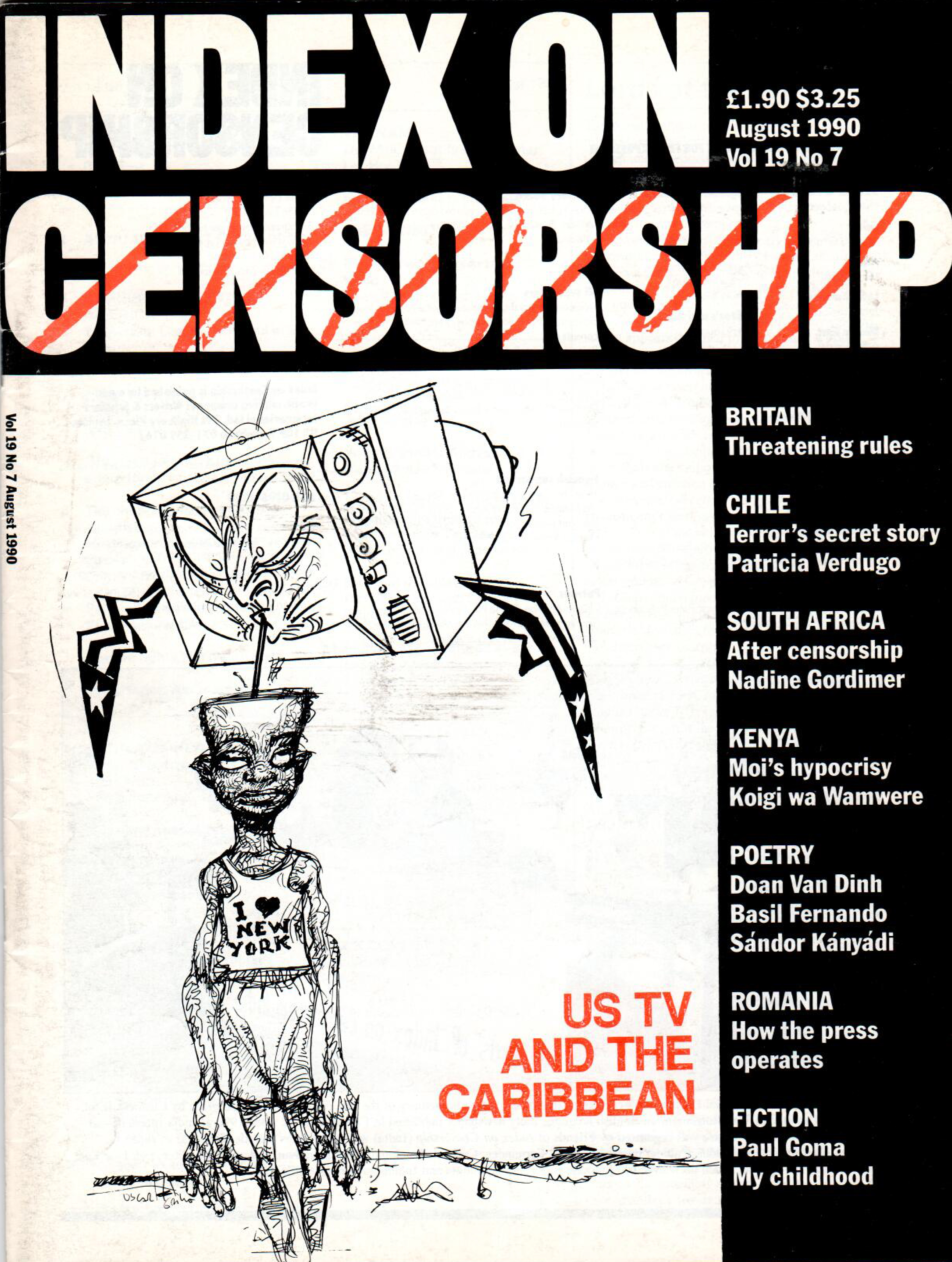

In this issue, Index on Censorship magazine explores the role of imported US television and culture in the Caribbean.

In this issue, Index on Censorship magazine explores the state of the press in West Africa.
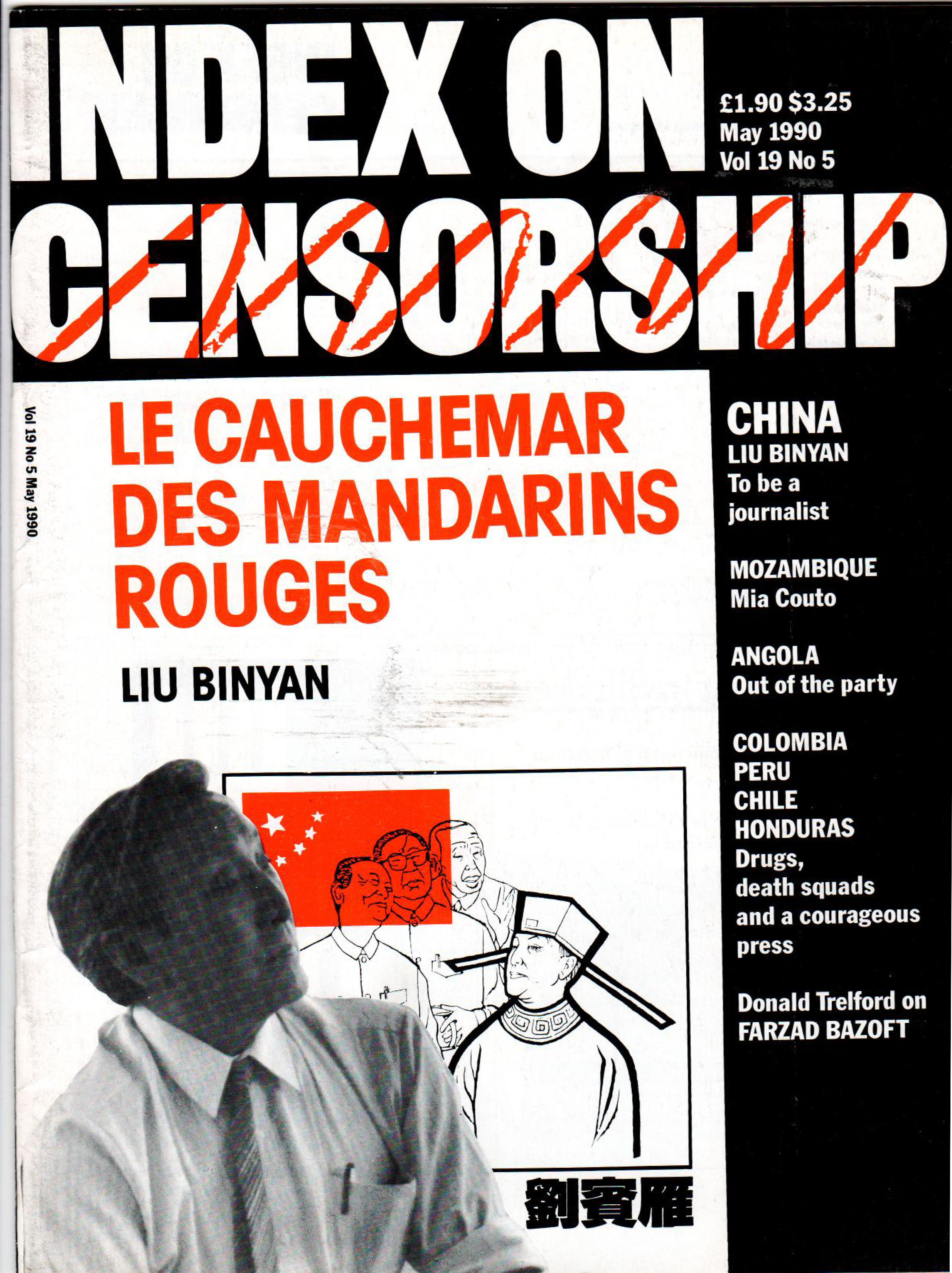
In this issue, Index on Censorship explores the state of the press under repression in China, and the concerns of the Chinese Communist Party.
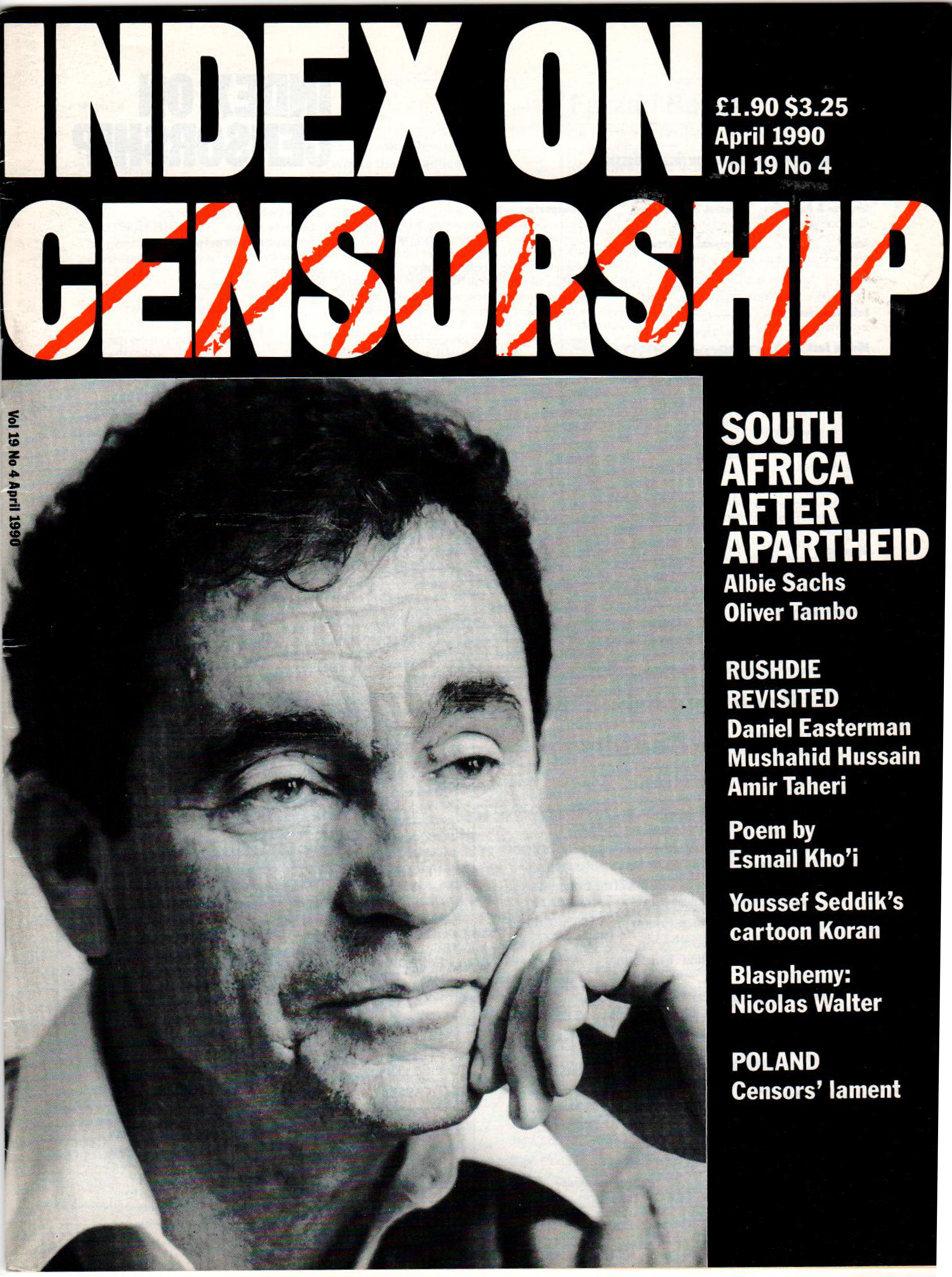
In this issue, Index on Censorship magazine explores the future of South Africa after apartheid.
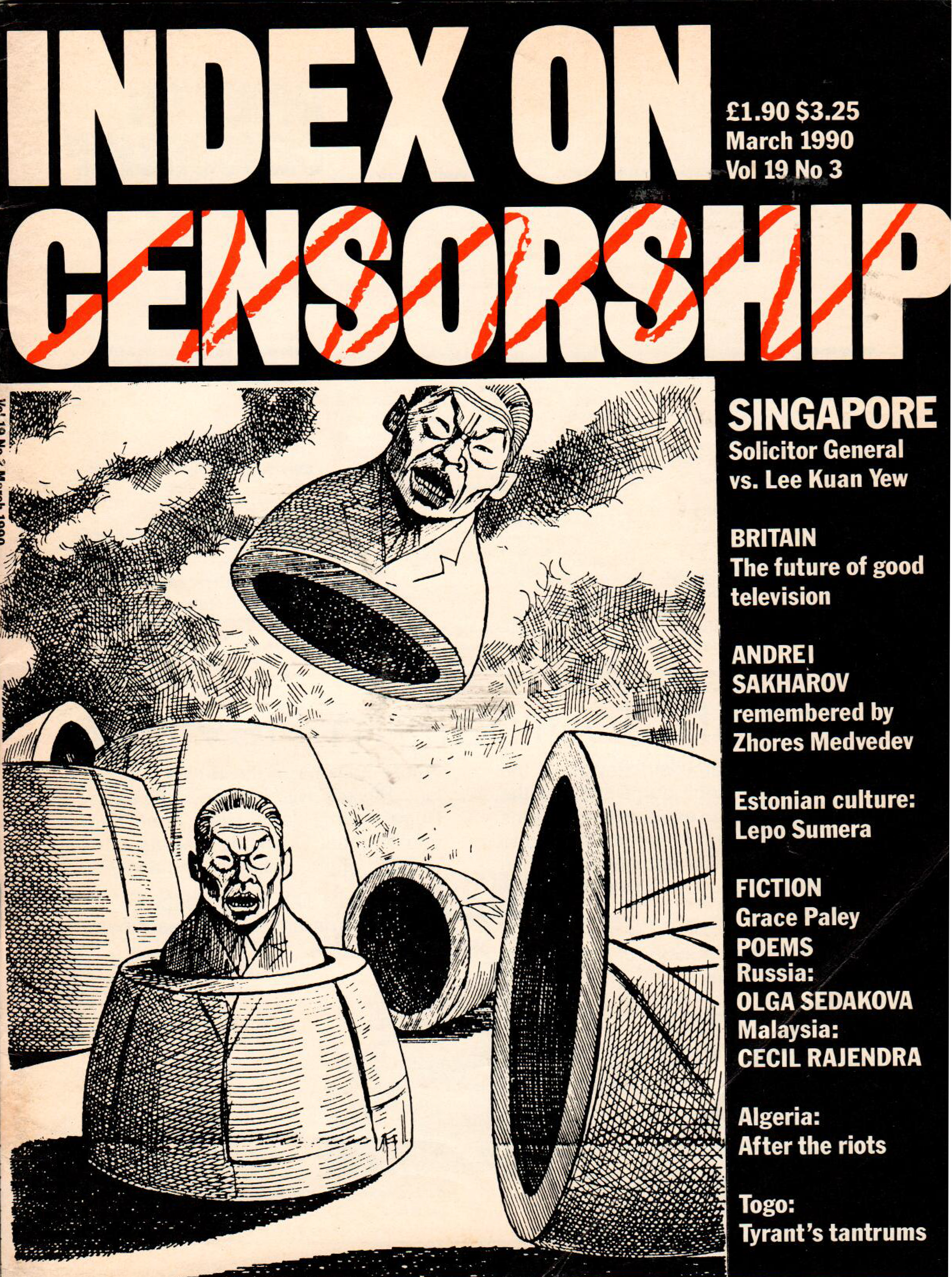
In this issue, Index on Censorship magazine explores the erosion of rights in Singapore.
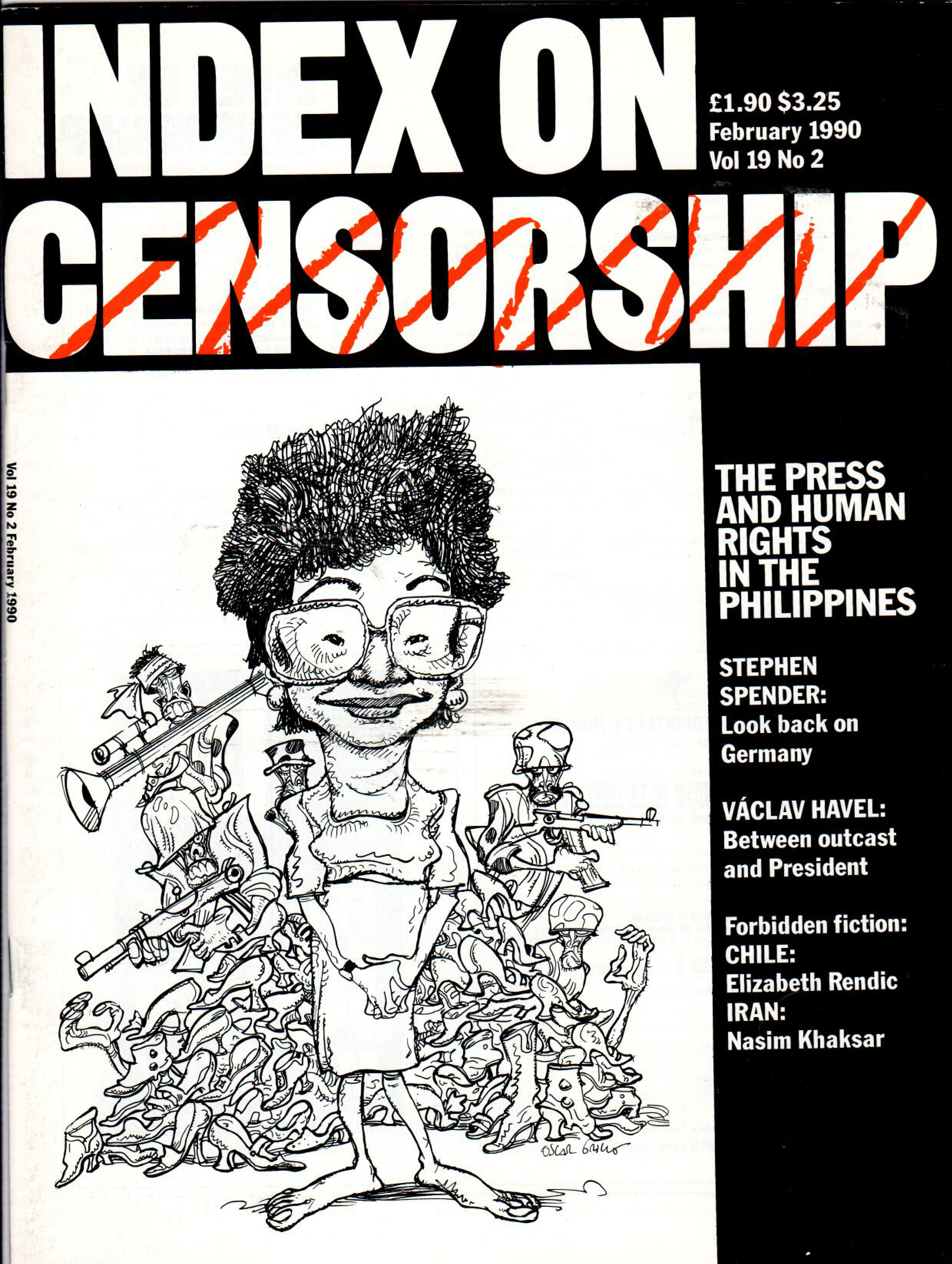
In this issue, Index on Censorship magazine explores the state of the press in the Philippines.
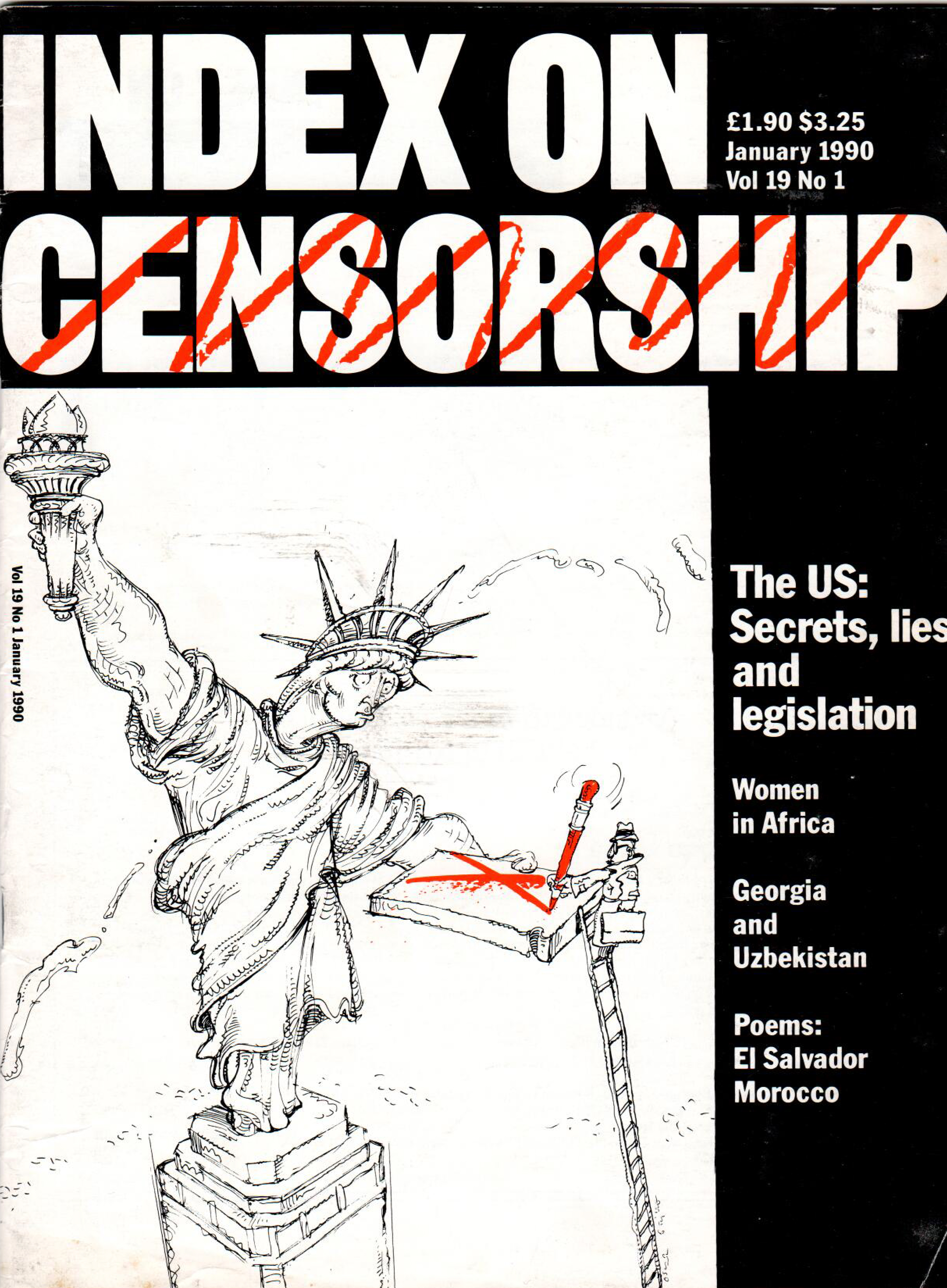
In this issue, Index on Censorship magazine explores the myth of the United States as a censorship-free society.

In this issue, Index on Censorship magazine explores experiences of young soldiers in the Soviet Union with excerpts from letters.
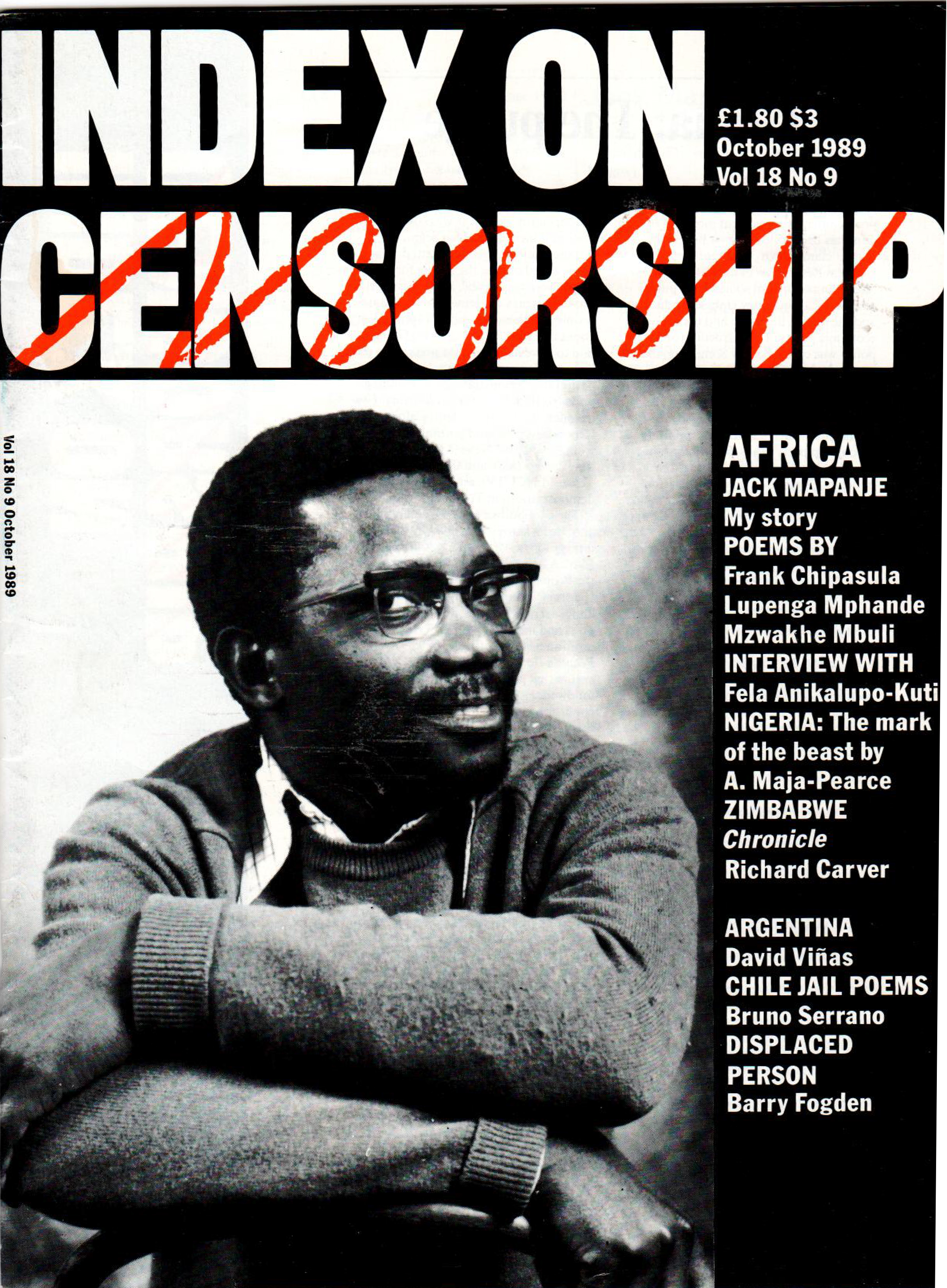
In this issue, Index on Censorship magazine explores the detention and censorship of Jack Mapanje and other African authors.
[vc_row][vc_column][vc_column_text] By Adewale Maja-Pearce The massacre and arrest of thousands of pro-democracy movement members in June has been followed by a purge, the biggest clampdown on dissent since the Cultural Revolution in the sixties....
A quarterly journal set up in 1972, Index on Censorship magazine has published oppressed writers and refused to be silenced across hundreds of issues.
The brainchild of the poet Stephen Spender, and translator Michael Scammell, the magazine’s very first issue included a never-before-published poem, written while serving a sentence in a labour camp, by the Soviet dissident Aleksandr Solzhenitsyn, who went on to win a Nobel prize later that year.
The magazine continued to be a thorn in the side of Soviet censors, but its scope was far wider. From the beginning, Index declared its mission to stand up for free expression as a fundamental human right for people everywhere – it was particularly vocal in its coverage of the oppressive military regimes of southern Europe and Latin America but was also clear that freedom of expression was not only a problem in faraway dictatorships. The winter 1979 issue, for example, reported on a controversy in the United States in which the Public Broadcasting Service had heavily edited a documentary about racism in Britain and then gone to court attempting to prevent screenings of the original version. Learn more.